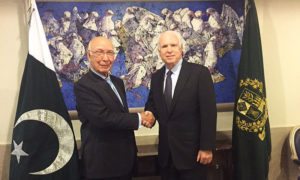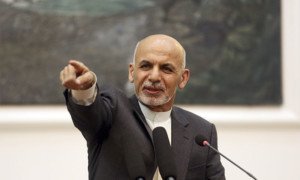MANHATTAN: The United Nations General Assembly voted on Friday to elect Indonesia, Germany, Belgium, South Africa and the Dominican Republic for a two-year term in the Security Council, the world body’s power center, starting on 1st of January, 2019.
Indonesia overwhelmingly defeated the Maldives in the contested election for one Asia-Pacific seat by 144 to 45, while the other four candidates ran unopposed.
Uncontested candidates still need to win more than two-thirds of the overall General Assembly vote to be elected. There were 190 ballots in Friday’s vote.
Germany received 184 votes, Belgium had 181, South Africa got 183, and the Dominican Republic had 184 after one round of voting. Regional groups generally agree upon the candidates to put forward and competitive races are increasingly rare.
In a typical year, the General Assembly elects five new members, which join the five elected the previous year and the five permanent, veto-power seats: the United States, Britain, France, China, and Russia.
The five members giving up their seat at the end of this year are the Netherlands, Sweden, Ethiopia, Bolivia, and Kazakhstan. The five seats not up for election this year are currently held by Ivory Coast, Equatorial Guinea, Kuwait, Peru, and Poland.
A piece published earlier: Pakistan on Wednesday reaffirmed its stand for an increase in the number of non-permanent members in the United Nations Security Council (UNSC) as the “best” method to make the 15-member body more representative and democratic. “We believe that the best, and the only way, to accommodate legitimate regional and political aspirations, is to enlarge the Security Council in the non-permanent category,” Pakistan’s Permanent Ambassador to the United Nations, Maleeha Lodhi said, making a strong case against creating new permanent seats in the Security Council. India, Brazil, Japan, and Germany — known as the Group of four — have been pushing for permanent seats on the UNSC. But the Italy/Pakistan-lead Uniting for Consensus (UfC) stands for creating a new category of members — not permanent members — with longer duration and a possibility to get re-elected once. The Security Council, currently composed of five permanent members Britain, China, France, Russia and the United States, has 10 non-permanent members that are elected in groups of five to two-year terms. In her remarks, Ambassador Lodhi argued that any expansion of the unelected, or permanent, category of seats — would not make the Security Council more democratic and representative. “The only acceptable democratic method for political representation known to the modern era is periodic elections on a fixed tenure of term,” the ambassador added. (8th of March, 2017)
app
app











